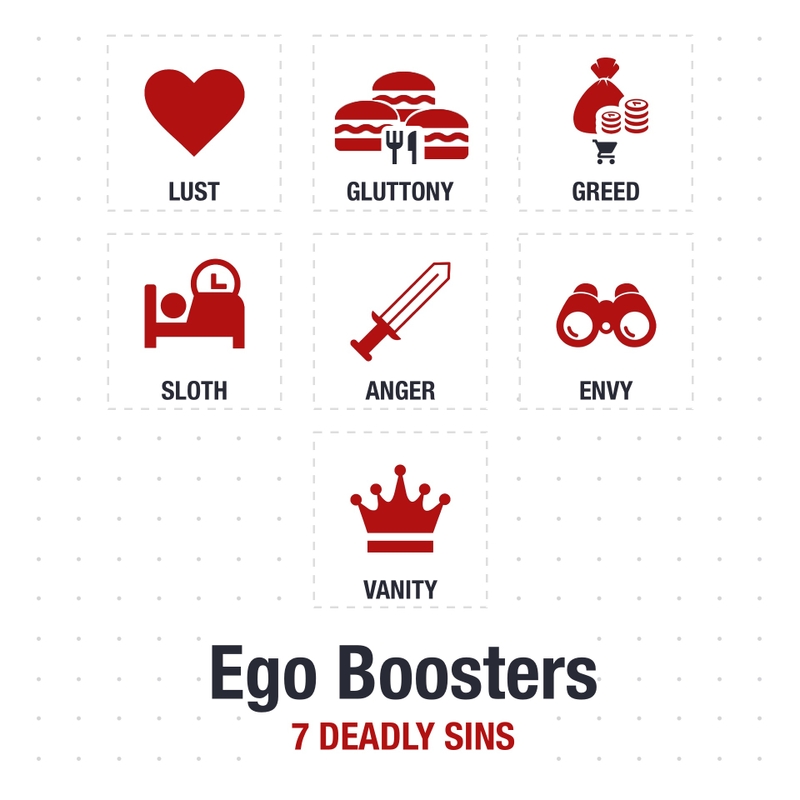I found this approach, “the way of thinking” when I made research about free-to-play game monetization.
Teut Weidemann, the lead designer of Settlers Online for Ubisoft’s Blue Byte studio said that you can apply 7 deadly biblical sins in your games towards making money.
It doesn’t mean that this approach can be applied to only free-to-play games. You can use this psychology to make some aspects of your game more engaging to the player. Therefore I call them the “Ego Boosters”.
Fun fact: SpongeBob SquarePants characters represent the seven deadly sins.
1. Lust
Definition: an intense or unbridled desire for sexual acts (mostly), money, or power.
In games, it can be measured as instant gratification. You can monetize instant “NOW!” buttons. Make a click do good. The more, the better.
2. Gluttony
Definition: overconsumption.
The aim for these players is to consume more. Monetize by better satisfaction. Sell better items than are in the game, like longer, better buffs (for example, healing potions). “Indirect timesavers.”
3. Greed
Definition: rapacious desire and pursuit of material possessions.
Want to be filthy rich, possess every item possible. Avoid selling in-game currency for this sin, as it won’t feel like an achievement. Sell larger inventories, or trade limit increase.
4. Sloth
Definition: Reluctance to work or make an effort. Laziness.
Under this sin also go those who don’t have much time for playing. They would be keen to buy process automation, like, auto repairs or overproduction handling.
5. Anger
Definition: Wrath. Uncontrolled feelings like anger and rage. Often revealing itself in the wish to seek vengeance.
Wrath on the enemy player. These types of players want all the best items right away, in order to defeat other players. Just make sure don’t end up designing the “pay to win” game. You can give them paid access to better battle reports, as it won’t break the game.
6. Envy
Definition: Desire to have a quality, possession, or other desirable thing belonging to someone else.
Want everything you have. So sell everything the opponent has. Enable the possibility to steal from other players. And on top of that, upsell revenge steal (Anger sin).
7. Vanity/Pride
Definition: Possessing the irrational belief that one is automatically and essentially better than others, failing to acknowledge the accomplishments of others, inflated self-importance, and excessive admiration of the personal self (especially forgetting one’s limits and faults as a human being)
Want to show off. It’s the backbone of capitalism. This one is easy to master in MMO games or any online game that has social hubs. Where players have avatars that can meet, interact with each other.
Afterwords
Although it is been called “7 deadly sins” it doesn’t mean you have to avoid it in your game design or dial up the exploit knob and use it at the maximum possible level.
If you are aware of these human weaknesses, you can use them for a better cause.
For an even deeper exploit of human psychology, you can mix and match 7 deadly sins with Bartles player archetypes.

